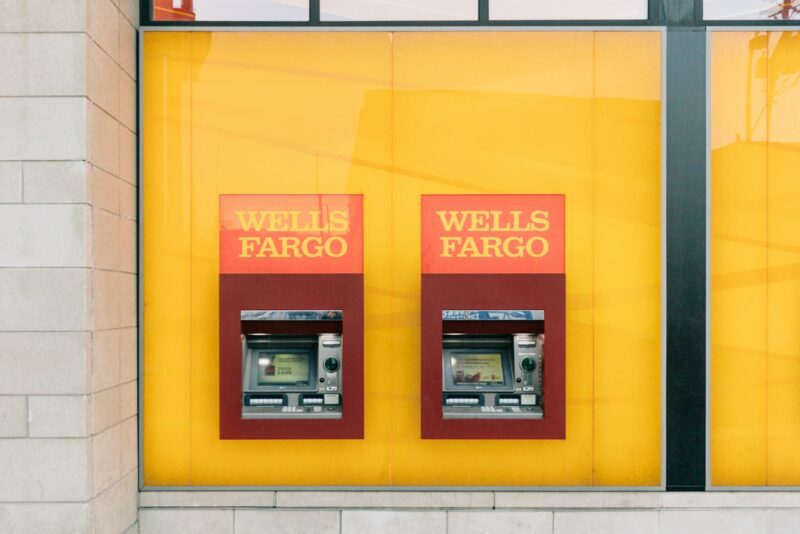Table of Contents
ToggleAdvantages of a Money Market Account and Selection Strategies
A money market account (MMA) combines the high-interest potential of a savings account with the convenient access to funds often associated with checking accounts. Opting for a MMA can be a strategic move for individuals aiming to expand their savings effectively due to their competitive interest rates.
Key Advantages:
- Higher Interest Rates: Compared to traditional savings accounts, MMAs typically offer more attractive interest rates, enabling your balance to grow at a faster rate.
- Fund Accessibility: Like checking accounts, many MMAs provide options such as writing checks or using a debit card, adding a layer of liquidity to your finances.
- Compounding Interest: Frequent compounding can increase your savings over time, as the interest earned adds to the principal sum, which in turn earns more interest.
- Safety: Money market deposit accounts are often insured up to $250,000, safeguarding your assets up to insurance limits.
When searching for the right MMA to support your financial goals, consider these aspects:
- Rate Comparisons: Scrutinize the interest rates across institutions to ensure you’re getting a competitive return.
- Account Restrictions: Verify minimum balance requirements and assess whether they align with your saving habits and capacity.
- Insurances: Ensure the institution’s MMA offerings are backed by reputable insurances, like the FDIC, to protect your funds against institutional failures.
- Fees and Charges: Be mindful of any potential monthly fees or service charges that could offset interest earnings.
Enhanced Strategies for Savings Accumulation
When considering strategies for bolstering one’s savings, the multitude of account options can significantly influence the growth potential of the funds. Among popular choices such as traditional savings accounts, certificates of deposit (CDs), and high-yield savings accounts, money market accounts stand out for blending liquidity and favorable interest rates.
- Money Market Accounts: Combine easy access to funds with competitive interest earnings.
- Interest Rates: Often exceed traditional savings accounts.
- Annual Percentage Yield (APY): Higher APYs compared to the national average.
- Balance Requirements: Offer favorable terms even for balances below $100,000.
Contrastingly, standard savings options tend to offer lower interest rates, whilst CDs, although similar in yield, impose penalties for premature withdrawals. Money market accounts are distinct in their flexibility, allowing depositors to reap benefits akin to both savings and checking accounts.
These accounts typically entail:
- Higher Interest Rate: More substantial growth over time.
- Liquidity: Accessibility for both short-term and long-term objectives.
- Minimum Balance Requirements: Differ by institutions, but often come with manageable stipulations.
- Fees: Variable, with many accounts offering low or no monthly fees.
In an economic landscape marked by inflation, the higher interest rates and compounded interest of money market accounts could serve to protect the buying power of savings better than traditional counterparts, making them a strategic choice for safeguarding and enhancing an emergency fund or other financial reserves.
Effortless Fund Accessibility
With money market accounts, customers enjoy the convenience of up to six fee-free withdrawals each statement cycle. Here’s a breakdown of the features that enable immediate access to funds:
- Debit Cards: Spend directly from the account.
- Check-Writing Privileges: Pay bills or settle transactions with ease.
- ATM Access: Withdraw cash anytime from network ATMs.
- Direct and Electronic Transfers: Move money swiftly between accounts.
- Mobile Banking: Manage funds and execute transactions remotely.
These accounts blend the advantage of earning interest, akin to savings, with the flexibility usually associated with checking accounts. This combination proves advantageous for those seeking both accessibility and prudent financial growth.
A Secure Place to Keep Your Money
Money market accounts offer a stable option for safeguarding funds. They typically provide better returns than traditional savings while maintaining security through:
- Federal Backing: Accounts are safeguarded by the Federal Deposit Insurance Corporation (FDIC) for banks or by the National Credit Union Share Insurance Fund (NCUSIF) through the National Credit Union Administration (NCUA) for credit unions, up to $250,000.
- Low-Risk Investment: Unlike stocks or bonds, money market accounts carry much lower risk, making them a secure choice for those averse to the volatility of the stock market.
- Regulation: These accounts are subject to Regulation D, which imposes certain transaction limits, enhancing the stability of the financial institution.
It is important to understand that money market accounts are different from money market mutual funds, the latter of which are not FDIC or NCUA insured and come with higher risk levels.
Selecting the Appropriate Savings Vehicle
When aiming to allocate funds for future needs, whether for an emergency, a house purchase, or specific financial goals like a wedding or vacation, it’s essential to carefully examine various deposit accounts available. Here are some key factors to consider while navigating your options:
- Interest Rates: Look for competitive APYs (Annual Percentage Yield) to maximize the growth potential of your savings. Compare rates across different accounts, such as savings accounts, money market funds, and certificates of deposit (CDs).
- Account Features: Opt for an account that offers ease of access and convenience, such as online check deposits, efficient fund transfers, and user-friendly mobile applications.
- Fees: It’s crucial to be aware of any monthly maintenance fees that could diminish your savings over time. Select financial institutions that offer accounts with no monthly fees to keep your expenses minimal.
- Insurance: Ensure your account is FDIC insured, safeguarding your money up to the maximum allowable limit.
- Account Types: While money market accounts often yield higher interest rates than standard savings and checking accounts, they may come with certain restrictions. On the other hand, traditional and deposit savings accounts might offer more liquidity.
- Liquidity vs. Yield: Money market accounts typically balance a favorable yield with liquidity, whereas a certificate of deposit (CD) might offer higher returns but requires you to lock funds for a set period.
- Savings Goals: If you’re establishing an emergency fund or saving for a short-term goal, access to your funds is vital. Assess how different accounts cater to these needs.
- Investment Options: Should your risk tolerance be higher, consider diversifying with options like money market mutual funds, government securities, or even a brokerage account.
Common Questions Regarding a Money Market Account
Typical Returns on a Money Market Account
Interest rates for money market accounts tend to vary based on the financial institution and the prevailing economic conditions. Money market accounts generally offer higher interest rates than standard savings accounts due to their requirement of higher minimum balances. The rates are often competitive but may not be as high as those of certificates of deposit (CDs).
Protection of Funds in a Money Market Account
The Federal Deposit Insurance Corporation (FDIC) safeguards money deposited into money market accounts up to the legal limit, which is currently $250,000 per depositor, per insured bank, for each account ownership category. This means in the event of a bank failure, the FDIC will protect your money up to that amount.
Money Market Account Pros and Cons
Advantages include:
- Typically higher interest rates than savings accounts
- Check-writing and debit card privileges
- FDIC insurance provides a layer of security
Disadvantages:
- Higher minimum balance requirements
- Limited transactions per month
- Interest rates can fluctuate
Ideal Users of a Money Market Account
Individuals who prefer having their savings in a low-risk environment while earning interest might find money market accounts beneficial. They are suited for those who can maintain higher balances and desire some liquidity with a stable return.
The Safety of a Money Market Account as an Investment
Money market accounts are considered safe investments due to FDIC insurance, which protects account holders against bank failures. Additionally, they offer a stable interest earning, which makes them less risky compared to stocks or mutual funds.
Comparison with Other Savings Vehicles
Money market accounts offer a balance of yield and liquidity that can be more attractive compared to traditional savings options. They typically provide higher interest rates than checking or savings accounts but may not match the rates of CDs. However, they offer greater flexibility in accessing funds compared to CDs, which have strict withdrawal penalties.














